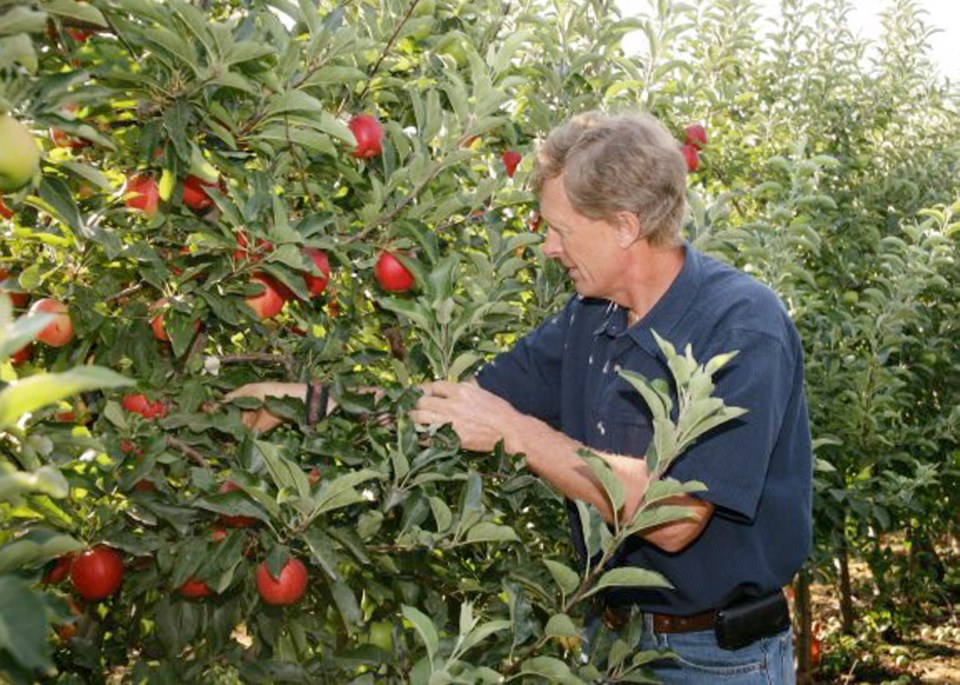The Arctic apple — genetically modified to resist turning brown using the apple’s own DNA — was created by B.C.’s own Okanagan Specialty Fruits and recently approved for commercialization in the United States. FDA approval for sales to consumers is expected this month.
OSF has applied to the Canadian government to grow and sell the apples in Canada. The B.C. Fruit Growers Association is concerned that the Arctic apple might create a backlash against all apples and limit their ability to sell organic apples, if they are grown near transgenic apples. What is all the fuss about?
1: Arctic apples are engineered to be naturally low in polyphenol oxidase, an enzyme that reacts to and consumes polyphenols when cell walls are ruptured through slicing or bruising. Polyphenols are substances that promote flavour and aroma. Genes that contain the instructions for making polyphenol oxidase are silenced in the Arctic apple’s DNA by inserting an extra set of the apple’s own instruction set for polyphenol oxidase that causes it to cancel out, according to OSF president Neal Carter. No novel proteins are created by this process.
2: The Arctic apple’s transgenic DNA can be carried in pollen to other apple trees by pollinating insects, though it seldom happens over any significant distance, according to former federal research scientist Dr. David Lane. If Arctic apples did cross-pollinate with other apples, the transgenic material would only be present in the seeds and not the flesh of the fruit.
3: The United States Department of Agriculture determined earlier this month that Artic apples are as safe to eat as any other apple, that they “are unlikely to pose a plant pest risk” and that they are “not likely to have a significant impact on the human environment.” Approval to grow and sell the Arctic Granny Smith and Arctic Golden apples in Canada could come later this year.
4: Arctic apples are one of a handful of genetically engineered foods approved for sale in the U.S. that are eaten in their natural state; others include potatoes, papaya and sweet corn. Other GE crops include sugar beets, soy, canola and corn, which are mainly used to make ingredients for processed and ready-to-eat foods. About 70 to 85 per cent of processed foods contain material from GE crops, according to the Grocery Manufacturers Association.
5: Only 31 per cent of Canadians polled favoured approval of the Arctic Apple, according to a survey commissioned by the B.C. Fruit Growers’ Association. GE Free BC and the Canadian Biotechnology Action Network strongly opposed approval of the apple in Canada citing possible threats to organic trade and exports. A consumer survey commissioned by OSF suggests that 59 per cent of people who eat apples are likely to buy an engineered non-browning apple.



